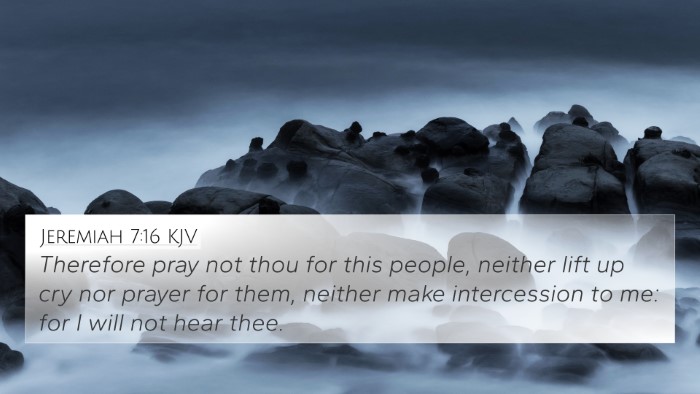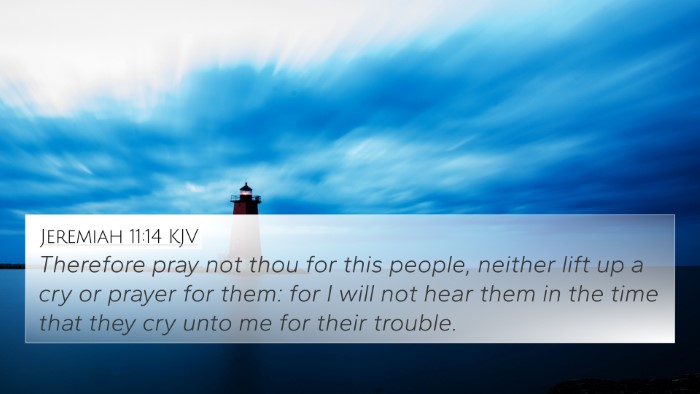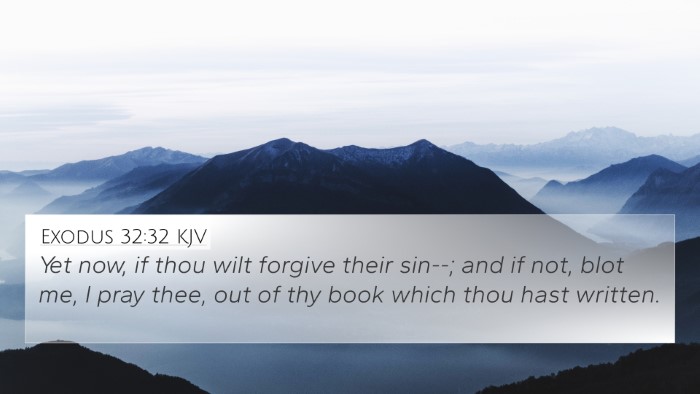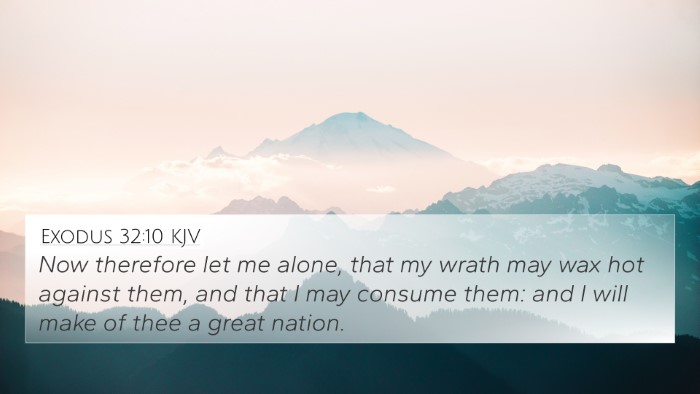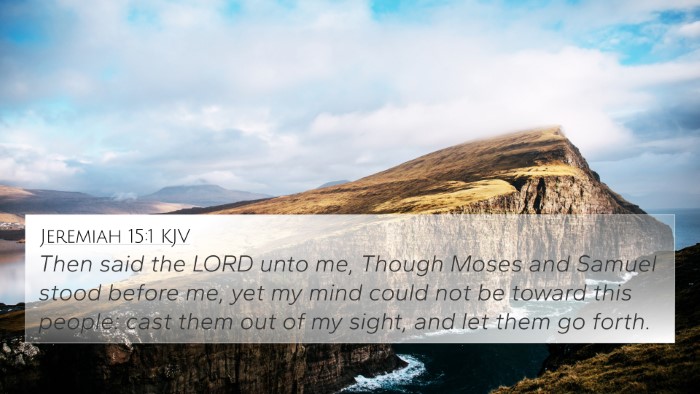Understanding Jeremiah 14:11
In this verse, the Lord expresses His command to Jeremiah regarding the people's persistent unfaithfulness. This passage reveals the tension between divine justice and human behavior, compelling readers to reflect upon the significance of repentance and the consequences of disobedience.
Overall, this verse serves as a solemn reminder of God's response to the Israelites during a time of crisis and famine, illustrating His desire for truthfulness and integrity in the hearts of His people.
Commentaries Overview
-
Matthew Henry's Commentary:
Henry highlights that God is not willing to hear the prayers of a people who openly reject His authority. Here, God expresses His anger toward the people's insincerity and superficiality in seeking help. This verse illustrates a divine refusal to protect those who consistently defy His commandments.
-
Albert Barnes' Notes:
Barnes emphasizes that the rejection of prayer by God illustrates the seriousness of sin and the need for genuine contrition and repentance. It serves as a stark warning that God will not hear prayers that are not uttered in true faith and sincerity.
-
Adam Clarke's Commentary:
Clarke points to the historical context, noting that the Israelites were suffering from drought and famine due to their disobedience. God’s refusal to hear is a direct outcome of their rebellion, indicating that true repentance is required for reconciliation with God.
Bible Verse Cross-References
-
Psalm 66:18: "If I had cherished sin in my heart, the Lord would not have listened."
-
Isaiah 59:2: "But your iniquities have separated you from your God; your sins have hidden his face from you, so that he will not hear."
-
Proverbs 28:9: "If anyone turns a deaf ear to my instruction, even their prayers are detestable."
-
Micah 3:4: "Then they will cry out to the Lord, but he will not answer; at that time he will hide his face from them because of the evil they have done."
-
Lamentations 3:44: "You have covered yourself with a cloud so that no prayer can get through."
-
James 4:3: "When you ask, you do not receive, because you ask with wrong motives, that you may spend what you get on your pleasures."
-
1 John 5:14: "This is the confidence we have in approaching God: that if we ask anything according to his will, he hears us."
Thematic Bible Verse Connections
Jeremiah 14:11 serves not only as a standalone warning but also links thematically with other biblical texts that address the concepts of prayer, repentance, and the conditions that accompany God's favor. These connections reveal a consistent divine principle across both the Old and New Testaments—that God seeks genuine hearts and will not entertain falsehood or insincerity in worship.
Conclusion
In summary, Jeremiah 14:11 encourages individuals to introspect on the nature of their prayers and relationship with God. It warns that God desires earnestness in worship and a commitment to obedience, underscoring the idea that prayer without sincerity and repentance fails to reach God. Through a comparative Bible verse analysis, we can see how this verse fosters understanding within the greater biblical narrative, inviting believers into deeper reflection and a more meaningful relationship with God.



